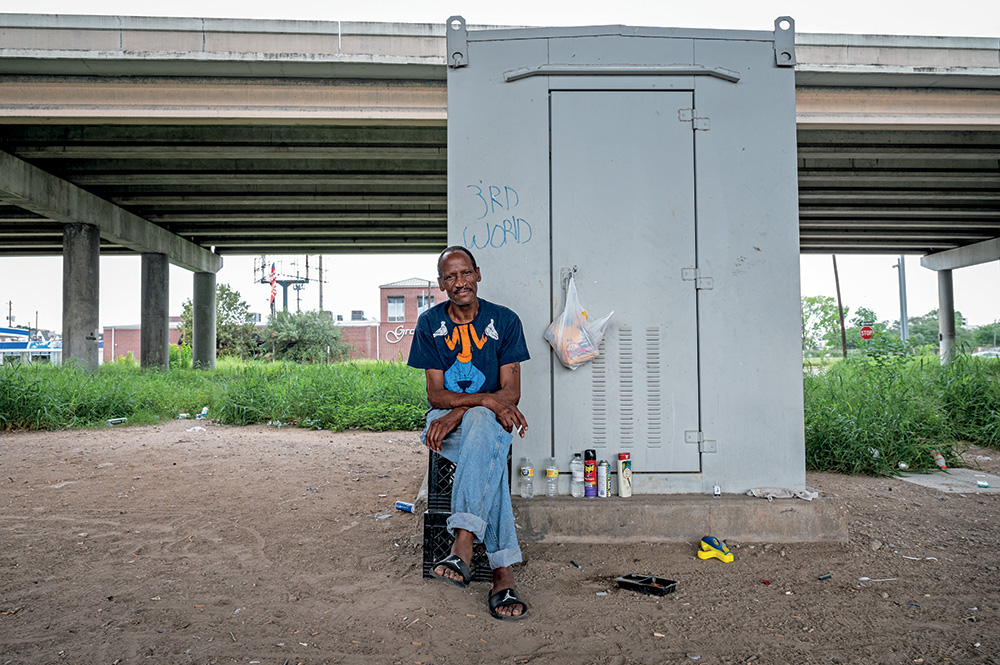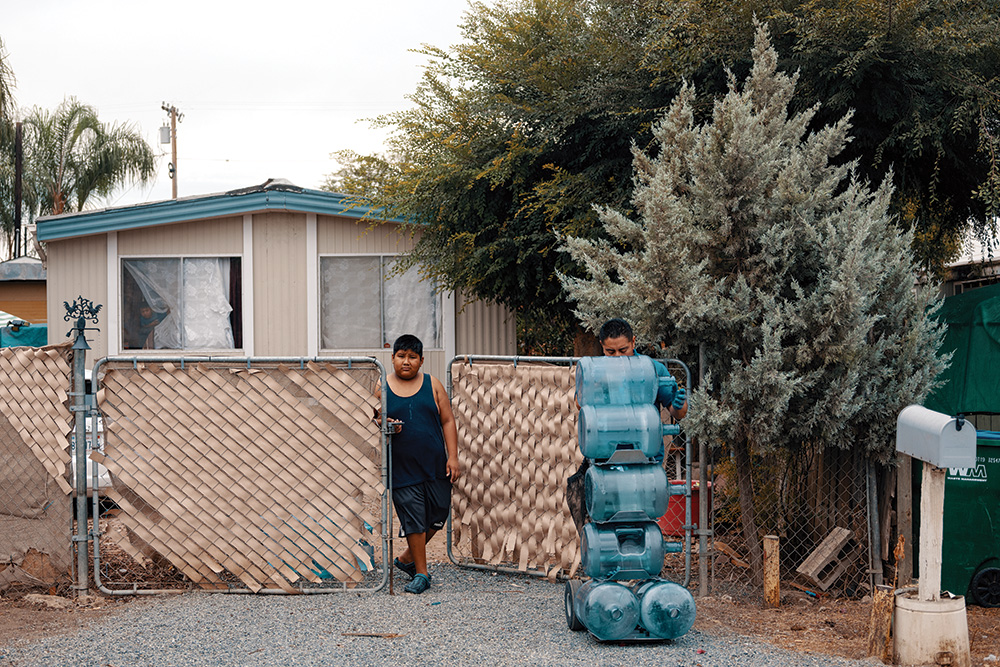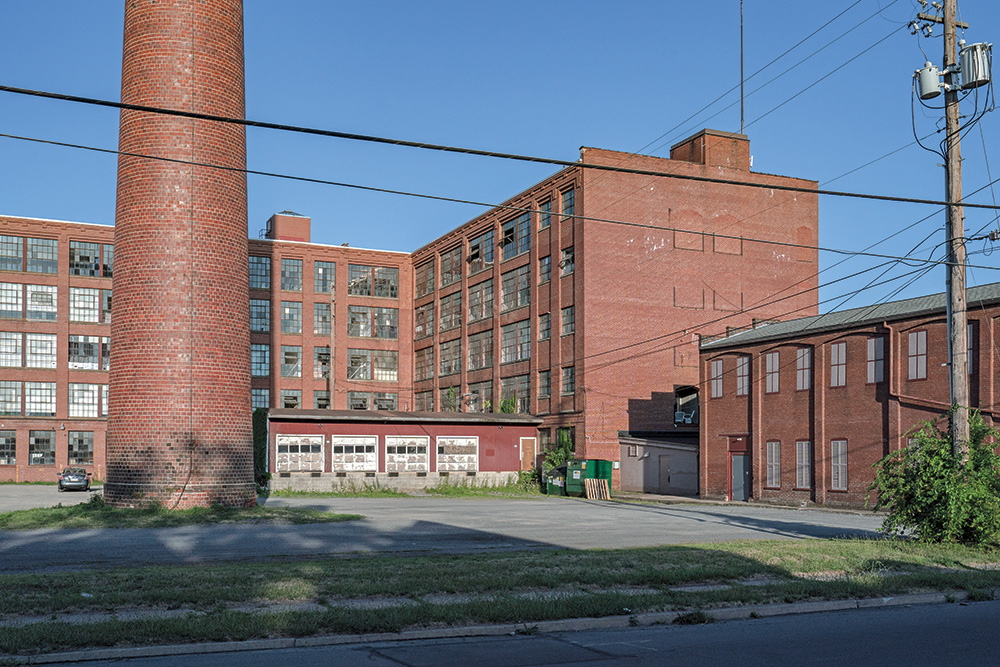The Problems Facing the American Political Economy
Drawing on our listening sessions and our deliberations, this section offers a brief account of what the Commission believes are the most pressing problems facing the American political economy. We formulated our recommendations in the hope that, if implemented, they would help alleviate these problems. Not every Commission member agrees with every element of the problem descriptions that follow. Our members did, however, come to consensus around the general scope of the challenges that Americans face.
Large societal transformations strongly affect people’s economic well-being in the short run, and reshape the political economy in the long run. While it is impossible to predict all such transformations, two are clearly underway: climate change and artificial intelligence. Both are massive in scale, and both are only beginning to reveal their economic and political effects. The Commission chose not to offer specific recommendations on either of these topics. Another Academy report—Forging Climate Solutions: How to Accelerate Action Across America—offers policy recommendations to 1) effectively and equitably remove barriers to climate action and 2) create a whole-of-society approach to accelerating climate mitigation and adaptation.21
Flaws in Our Democracy and Flaws in Our Economy Reinforce Each Other
The health of the nation’s economy and the health of its democracy are inextricable. The Academy’s Our Common Purpose report argues that it is impossible to understand the challenges facing American political institutions, political culture, and civil society without the economic context of the last fifty years.22 The uneven distribution of economic gains is both the cause and the result of unresponsive political institutions. The extent of the unevenness is difficult to ignore. Growth and productivity gains have not been broadly shared. Since 1980, the rise in GDP per capita has outpaced the rise in median household incomes in all member countries of the Organisation for Economic Co-operation and Development, with the United States having the fourth greatest divergence, trailing only the Slovak Republic, Hungary, and Poland.23 Although a tight labor market has recently fueled wage growth for low-income Americans, wages in the top 10 percent of the national distribution have risen much faster than in the bottom 90 percent since 1979, and wages in the top 1 percent and top 0.1 percent have skyrocketed.24 Such uneven distribution of wealth and income has a cascading effect, and many of our Commission members believe it increases levels of economic insecurity and makes opportunity harder to achieve. Many members of the Commission also believe that economic inequality puts our democracy under strain. In the current structure of our democratic system, economic power translates into political power. The notion that our democracy is more responsive to the interests of the rich and powerful has caused many ordinary Americans to lose faith in the ability of the political or economic system to address their needs. This has resulted in less representative institutions, disillusionment, or, more dangerous, a turn to extremism.
“There’s a lot of poor [people] in this area and there are some areas where there is no support. What can we do? We don’t have advocates to help us or stand up for us. And if we do, we can’t find them. We can’t get in touch with them because we don’t have phones. And when you do finally get back in touch with them, they can’t follow through. . . . We’re so far down on the economic chain that we don’t have nothing. It seems like our voices don’t matter.”
— Reuben, Former Welder, Texas (pictured)
The economy shapes democratic life in more tangible ways as well. Multiple listening session participants noted that they want to be involved in their communities but are not able to do so. Many people who work more than one job do not have the time or resources to attend a town hall meeting, volunteer with a local nonprofit, or get involved in politics. And in a democratic society, workers should be able to participate directly in helping shape the conditions of their work. In national surveys, many American workers report having less influence over decisions at work than they believe they should have.25 Many of our participants were appreciative of the chance to take part in the listening sessions, simply because it felt like a rare opportunity for them to make their voices heard. They should have many other opportunities to do so.
There are other challenges in the functioning of the nation’s democracy that exacerbate economic problems. Gridlock in polarized institutions can stymie hopes for legislation that would enable broadly popular economic reforms. The high cost of campaigning can make it hard for the voices of regular voters to be heard and can make it difficult for lower- or even middle-income Americans to pursue elected office. Finally, a divisive political culture makes it difficult for Americans to believe that “everyone is in this together.” People’s fear that the political system will not address their economic concerns ultimately threatens the nation’s political and economic systems.
Reforming the economy without addressing these challenges would be inadequate, as would reforming our democracy while ignoring the nation’s economic problems. One of our recommendations focuses on changing the socioeconomic makeup of representative institutions. Other recommendations call for strengthening institutions that can help bring communities and individuals together across lines of difference. Still others address the nuts and bolts of connectedness and address the unfair ways political institutions have been used to serve the interests of a select few.
Economic Insecurity Is Too High
Too many American families live with economic precarity. Despite progress in recent years, the percentage of families relying on food pantries has risen: nearly one-quarter of American adults reported food insecurity in 2022.26 More than nineteen million renters are burdened by housing costs (meaning that these costs make up at least 30 percent of their income), and the number of homeless children in public schools has reached unprecedented levels.27 Economic instability has left many Americans incapable of building a strong enough financial foundation to weather life’s unpredictable events.
These statistics only show the hard facts of financial precarity. They do not account for the mental toll that the stress of insecurity causes for American families and individuals. Throughout our listening sessions, we heard from Americans across a wide range of the socioeconomic spectrum who are unable to save enough to account for unexpected emergencies like car accidents, health issues, or natural disasters. The feeling of precarity permeates every part of their life, affecting their work, their civic life, their family, and their outlook on the future. Those who rely on social welfare programs feel that these programs are poorly designed or inaccessible, and do not meet the intended goal of providing American households with a real safety net.
The federal, state, and local responses to the COVID-19 pandemic demonstrated that government assistance, when deployed effectively, can lead to real progress in reducing insecurity. The expanded Child Tax Credit alone sharply reduced child poverty, which fell to a historic low of 5.2 percent of children below the Supplemental Poverty Measure in 2021. While children of all racial backgrounds benefited from the expansion of the Child Tax Credit, poverty rates fell most dramatically among Black children and Hispanic children.28 These successes are proof that the right programs, administered in the right way and under the right circumstances, can make major differences in people’s lives—a lesson that should not be forgotten.
All Americans should be able to expect a basic level of security. Our recommendations are meant to help ensure that all Americans are able not only to cover basic necessities but also to endure life’s ups and downs without fear of financial ruin. We identify strategies to remove barriers preventing security, particularly in health care, housing, and poorly designed social safety net programs. We also offer suggestions for constructing springboards to stability.
Working Forty Hours a Week Does Not Always Allow People to Support Themselves and Have a Decent Life
Work is a crucial component of American life and is vital for the pursuit of dignity. People spend much of their time and energy at work. Many Americans achieve a sense of self-worth and agency through their efforts to support themselves and their families. In the Commission’s listening sessions, almost no participants yearned for a life without work—including those who are unable to hold a steady job. While some acknowledged that they need help to get back into the workforce or need better pay or working conditions, they hoped to earn self-sufficiency through an honest day’s work.
The Commission seeks to help restore the social contract in which someone working full time, forty hours a week, can support themselves and their family and achieve a decent life. The Commission defines work capaciously. We take it to include work that is publicly valued and compensated, and also the essential labor of care and of meaning- and community-making that often exists outside our standard assessment of the economy and work life.
The Commission believes that all work has dignity. We also believe that all work deserves dignified compensation. It is unsurprising that Americans who feel they are fulfilling their side of the bargain by working lose faith when they are not sufficiently rewarded for their efforts.
During the height of the COVID-19 pandemic, a wide swath of workers were labeled “essential,” particularly people employed in grocery stores; child, elder, and health care facilities; food processing plants; and the agricultural sector. It was not lost on many Americans that some of the jobs considered essential were among the lowest paid, without robust benefits, and lacking in worker protections. Americans like having packages delivered on time and grocery shelves well stocked, but these things do not just happen. The nation owes more to the workers who are essential to keeping its economy afloat and maintaining its standard of living.
Any affirmation of the inherent dignity of labor needs to be accompanied by practices and policies that ensure workers receive the respect and compensation they are due. These should enhance workers’ bargaining power with employers, increase their take-home pay and benefits, and improve their prospects for better jobs. Some of the recommendations in our report would have this effect, including investments in worker training and upskilling, more flexible childcare and health care arrangements, the deconcentration of economic power where a single employer dominates the labor market, an expanded Earned Income Tax Credit, and the removal of unnecessary regulations keeping workers out of good jobs for which they are qualified.
Ensuring that work is rewarding also means workers need to be able to afford the necessities of life. The social contract is built not only on workers’ opportunities but also on ensuring that their health care, housing, childcare, and other central components of life are affordable.
The Commission reaffirms every worker’s opportunity to organize as part of a union. Workers deserve the opportunity to decide whether a union is right for their workplace and whether they want to join one. Some employers seek to prevent their workers from organizing or exercising the rights provided to them under the National Labor Relations Act (NLRA) (the law does not apply to public-sector workers). The NLRA makes it an unfair labor practice for an employer “to interfere with, restrain, or coerce employees” in their pursuit of a union.29 While employers have a right to make their case to their employees against unionization, some employers take excessive steps to prevent union formation, sometimes violating federal law in the process.30 The Commission supports the legal protections that allow workers the opportunity to unionize.
Racial Disparities Are Stubbornly High
Racial discrimination is embedded in many of the nation’s economic and political institutions. It helps explain the racial disparities in many areas of American life, including education, employment, housing, health care, and the criminal and civil legal systems. These disparities are not accidental or natural. They are the cumulative result of centuries of public policies and institutional practices, many of which were explicitly designed to perpetuate racial inequities.
Over the course of American history, major pieces of federal social legislation were exclusionary along racial lines. For example, when Social Security was enacted in 1935, it excluded agricultural and domestic workers, a large percentage of whom were Black. And decades of redlining by federal housing agencies deprived minority neighborhoods of equal access to mortgage loans and other investments. Such policies have provided socioeconomic benefits to white Americans and prevented nonwhite Americans from receiving them. These policy choices have been highly consequential for succeeding generations, and they help explain why white Americans have amassed wealth and economic resources at higher rates than minorities. In 2022, the wealth of Black or Latino households was, on average, roughly one-quarter that of a white family (there is no recent nationwide data that capture the wealth of Native American households).31 The nation needs to do more than merely end discriminatory policies. As President Lyndon Johnson famously said in 1965, the nation cannot “take a person who, for years, has been hobbled by chains and liberate him, bring him up to the starting line of a race and then say, ‘you are free to compete with all the others,’ and still justly believe that [we] have been completely fair.”32 By creating policies that address past harms and ongoing disparities, the United States can get closer to having an economy that truly provides everyone with economic security and fair access to opportunity.
Economic Opportunity Is Geographically Skewed
The United States has always had richer areas and poorer areas. But over the last few decades, the gap between the richest and poorest regions and communities has become more dramatic. High-paying jobs, high-growth industries, and the best education and health care facilities are generally concentrated in a few coastal cities. Between 2015 and 2019, for example, just eight cities—San Francisco, San Jose, Austin, Boston, Seattle, Los Angeles, New York, and Washington, D.C.—accounted for almost half of the nation’s new tech-sector jobs.33 High-paying occupations such as finance are concentrated in many of these same cities, as well as Chicago, Atlanta, Charlotte, and Miami.34
Other parts of the country have been left behind, particularly communities in rural America, but also suburbs and overlooked areas within some of the wealthiest cities. These are places where population growth has stalled, business formation has slowed, jobs have disappeared, insecurity has increased, and local media have evaporated. If someone born into one of these communities wants a better life, they often have to move elsewhere.
Shut out from much of the economic progress of the last few decades, some people in these communities have understandably become resentful of urban elites and the perceived disempowerment of their communities in the political and economic system.35 This situation bears many similarities to the geographic cleavages that have affected other Western democracies in the aftermath of late-twentieth-century globalization. The Commission is particularly concerned about these disparities, and with bolstering security, opportunity, and civic life in left-behind areas.
Access to Opportunity Is Unequal
The idea of the United States as a land of opportunity is a central part of the national narrative, and a point of pride in American culture. The nation promises people the chance to build better lives for themselves through education, hard work, entrepreneurship, and imagination. But in reality, Americans have never all had equal access to opportunity and upward mobility. Geography, racial discrimination, and unequal access to high-quality schooling, among other limiting factors, mean that opportunity is not equally distributed. Some of the recommendations in this report aim to bolster opportunity and mobility by creating chances for workers to secure better jobs, improving economic prospects for left-behind communities, and addressing anticompetitive market behaviors.
The most obvious formal structure of opportunity in the United States is our public education system. Education is not mentioned in the Constitution, but our country has long been a leader in building a free, universal public education system, first in elementary school, then in middle school, then in high school. The most glaring exception to the American educational ethic has been public schools for nonwhite Americans. Schools for Black children, for instance, were in many places banned entirely, then kept separate and inferior, then often left isolated and under-resourced. The Commission believes the principle of universal high-quality education at public expense is essential and should be embedded in any ambitious reimagining of our economy. This includes correcting the system’s shortcomings.
Another distinctive feature of American public education is its extreme decentralization. Public schools are under the control of roughly thirteen thousand local school districts, which usually answer primarily to local boards and state education secretaries. Local real estate taxes are still the primary means of financing public education, which makes giving every child an equal opportunity a significant challenge. Unlike most of the developed world, the United States does not have a national curriculum, and recent attempts to create one have encountered fierce opposition and failed. National-level educational reform is challenging and politically complicated.
Because our Commission has such a broad mandate, we have chosen to focus our recommendations on a limited number of areas about which we feel that there is not enough public concern, or for which we have identified potentially large advances that may be achievable in the medium term. For that reason, our recommendations for education focus on America’s community college system and the enhanced role it can play in educating students for citizenship and in training them for and connecting them to good jobs in their communities. But our focus on community colleges should not be taken for a lack of concern with K–12 public education. Education and public policy scholars have in recent years produced a great deal of promising research on the connection between spending and student success, on what kinds of teacher training and instructional methods are most effective, and on the potential good effects of rigorous curricula and extended school days and academic years. All this amounts to more than we can cover in one or two recommendations. But it is urgent for the country to put K–12 education at top of mind if it is truly committed to having a high-functioning democracy that offers real opportunity to everyone.
“We really live in a world of abundance, but the abundance is misdistributed. And so yes, on the ground level, in our communities, there’s individual strategies that we could employ to do better, but on a macro level, we really have to talk about systemic change.”
— Barbara, Historian and Activist, Illinois
The Place and Design of Markets Is Often Unfair
Markets are made, not born. The notion of a political economy is rooted in the idea that government sets the rules under which markets and market actors operate. The specifics of government/market arrangements are not set in stone. Political economy is constantly renegotiated among the many actors involved, because there is no one place or document where America’s version of political economy is articulated.
Still, there are dominant paradigms that prevail at different times. These paradigms matter a great deal, because they shape countless economic decisions by governments at all levels, in legislation, regulation, and jurisprudence. Over the last few decades, the prevailing economic paradigm focused on minimally regulated markets and the spread of market sensibilities into all parts of American life. One result is that many of the civil society sectors meant to be somewhat protected from market pressures have instead been subsumed by them, most obviously higher education and journalism.
Another challenge is that, in the name of unfettered economic growth, wealthy firms and individuals have been able to preserve their advantages through friendly regulations or tax policies, often at the expense of other businesses and less wealthy individuals. The dominant economic approaches of the last few decades have sustained productivity growth but have also led to rising inequality, economic instability, and political discontent.
The nation is at a moment, recurring throughout American history, when policymakers and the public are reconsidering and readjusting the relationship between markets and governments. This is a broad development with many participants, including politicians in both major political parties. It is still in its early stages. We are proud to be able to take part in it. Altogether, our recommendations are meant to help the country envision a different political economy by providing a series of specific examples of actions and policies that would help, and that could attract bipartisan support. What our recommendations have in common is a focus on people’s well-being, and we do not assume that rising market indicators will automatically produce that result. Our mission, and that of many others at this moment, is to imagine a political economy that operates more clearly to the benefit of most Americans and generates more trust in our system and institutions.



